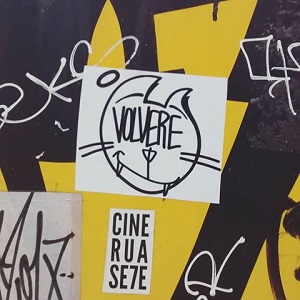Guarani club: an ethnographic narrative of the experiences of a black club in the extreme south of Brazil

Published 2019-12-17
Keywords
- Black Clubs; Afro-American Populations; Ethnographies of Pampa
How to Cite
Abstract
This article presents some ethnographic narratives woven during a research conducted with the black families who founded the Guarani Club in the Brazilian city of Arroio Grande, located near the border with Uruguay, a region strongly marked by the latifundium, the slavement, the patriarchy. Founded in 1920, with the aim of bringing together families who were prohibited from attending other social clubs in the city due to racial discrimination, the Guarani Club is considered by its founders and members to be one family. With contributions from the field of Urban Anthropology and Ethnographies of African American Populations, this work add the theme of black associations in the South American continent to the motivations, dilemmas and joys that have permeated the Club’s history since its foundation until its transformation into Point of Culture. The phenomena are, therefore, considered in their multiple crossroads of raciality, gender and class.
Downloads
References
ANDREWS, G. R. (2011). Negros en la nación blanca. Historia de los afro-uruguayos, 1830-2010. Montevideo: Linardi y Risso.
ÁVILA, R.; SEVILLA, G. E CARNEIRO FILHO, C. (2012). Faixa de fronteira do Rio Grande do Sul: economia, infraestrutura e gestão do território. Porto Alegre: Secretaria do Planejamento, Gestão e Participação Cidadã Fundação de Economia e Estatística Siegfried Emanuel Heuser.
BORUCKI, Á. (2015). From Shipmates to Soldiers. Emerging Black Identities in the Río de la Plata. New Mexico: U. New Mexico Press.
BORUCKI, A.; CHAGAS, K. E STALLA, N. (2004). Esclavitud y trabajo. Un estudio sobre los afrodescendientes en la frontera uruguaya 1835-1855. Montevideo: Pulmón.
COLLINS, P. H. (2017). Se perdeu na tradução? Feminismo negro, interseccionalidade e política emancipatória. Parágrafo: Revista Científica de Comunicação Social da FIAM-FAAM, 5 (1), 6-17. Disponível em: http://www.revistaseletronicas.fiamfaam.br/index.php/recicofi/article/view/559
CORRÊA, F. (Org.) (2004). Revista Tempos. Pelotas: Gráfica e Editora Cefet.
ESCOBAR, G. V. (2010). Clubes sociais negros: lugares de memória, resistência negra, patrimônio e potencial. Dissertação de Mestrado, Universidade Federal de Santa Maria. Programa de Pós-Graduação Profissionalizante em Patrimônio Cultural.
GUATTARI, F. (1992). Caosmose. Rio de Janeiro: Ed. 34.
GOLDMAN, G. (2008). Lucamba. Herencia africana en el tango. 1870-1890. Montevideo: Perro Andaluz Ediciones.
GOLDMAN, M. (2006). Como funciona a democracia: uma teoria etnográfica da política. Rio de Janeiro: Editora 7Letras.
GOLDMAN, M. (2015). “Quinhentos anos de contato”: Por uma teoria etnográfica da (contra)mestiçagem. Mana, 21 (3), 641-659. doi: 10.1590/0104-93132015v21n3p641.
INGOLD, T. (2014). That’s Enough About Ethnography!. Hau: Journal of Ethnographic Teory, 4 (1), 383-395. Disponível em: https://www.journals.uchicago.edu/doi/full/10.14318/hau4.1.021
LONER, B. A. (2001). Construção de classe: operários de Pelotas e Rio Grande (1888-1930). Pelotas: Ed. Universitária/UFPel-Unitrabalho.
LUGONES, M. (2008). Coloniality and Gender. Tabula Rasa, (9), 73-102. Disponível em: http://www.scielo.org.co/scielo.php?script=sci_arttext&pid=S1794-24892008000200006
MAESTRI, M. A (2006a). Ocupação do Território (Da luta pelo território à instalação da economia pastoril-charqueadora escravista). Passo Fundo: UPF.
MAESTRI, M. (2006b). O escravo no Rio Grande do Sul. 3.ª ed. Porto Alegre: UFRGS.
PALERMO, E. (2013). Tierra Esclavizada. El norte uruguayo em la primera mitad del siglo XIX. Montevideo: TierrAdentro.
PEREZ, L. F.; AMARAL, L. E MESQUITA, W. (Orgs.). Festa como perspectiva e em perspectiva. Rio de Janeiro: Garamond.
QUADRADO, B. F. (2012). “Cultura também é festa”- Patrimônio e Memória. Do Clube Guarani ao Ponto de Cultura Axé Raízes (Arroio Grande, RS). Monografia apresentada ao Curso de Licenciatura Plena em História da Universidade Federal de Pelotas. 2012.
QUADRADO, B. F. (2016). “Era meu sonho ser Miss Mulata”: A representação da mulher negra e mulata em um concurso de beleza 1969- 1999 (Arroio Grande, RS). Dissertação de Mestrado. Programa de Pós-Graduação em História, Universidade Federal de Pelotas.
RAMA, Á. (2004). Transculturación narrativa en América Latina. Buenos Aires: Siglo Veintiuno Editores.
RIETH, F. et al. (2013). Inventário Nacional de Referências Culturais - Lidas Campeiras na Região de Bagé/RS (Relatório Final). Vol. 1. Pelotas: Complexo Criativo Flor de Tuna.
RODRÍGUEZ, R. J. (2006). Mbundo. Malungo a mundele. Historia del movimiento afrouruguayo y sus alternativas de desarrollo. Montevideo: Rosebud.
SAMPAIO, E. G. DOS S. (2010). Clube Instrução e Recreio: Família de Rainhas no carnaval arroio-grandense no século XX. Monografia apresentada ao Curso de Licenciatura Plena em História da Universidade Federal de Pelotas.
SCHLEE, A. G. (2014). Linguagem de fronteira. Vox. Porto Alegre: Corag/IEL, (7).
SEGATO, R. L. (2012). Gênero e colonialidade: em busca de chaves de leitura e de um vocabulário estratégico descolonial. e-cadernos CES, 18.
SILVA, F. OLIVERIA DA. (2017). As lutas políticas nos clubes negros: culturas negras, racialização e cidadania na fronteira Brasil-Uruguai no pós-abolição (1870-1960). Tese de Doutorado. Programa de Pós-Graduação em História, Universidade Federal do Rio Grande do Sul.
WAGNER, R. (2010). A invenção da cultura. São Paulo: Cosac Naify.
